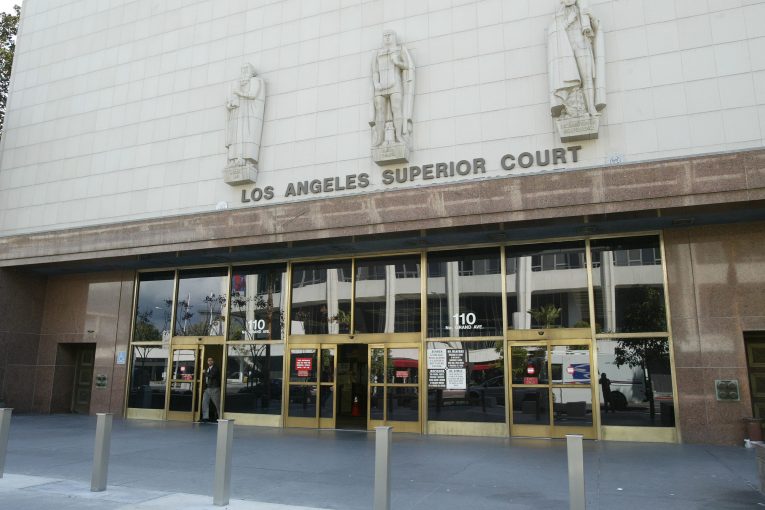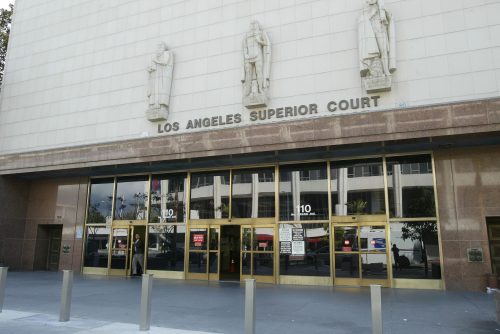

By Sarah Chayet
VAN NUYS, CA – Judge Diego H. Edber denied a defense motion to reduce a grand theft felony charge to a misdemeanor for two accused people, although the defense argued Los Angeles police facial recognition database was not substantial, and the value of stolen items was inconclusive, here at a preliminary hearing at Los Angeles County Courthouse Tuesday.
LAPD Officer Jonathan Gan claimed he first saw the accused in video surveillance footage that the victim had posted to a neighborhood app.
Interestingly, the victim had not made a formal report of the crime but the officer saw the neighborhood app post and reached out to the victim.
“The victim stated that he parked his truck behind his house…he later discovered items missing from the bed of his truck,” said Officer Gan, who added that prompted the victim to check video surveillance footage from the day the items went missing.
Officer Gan described the video footage as showing two individuals taking items out of the victim’s truck and placing them into a white Chevrolet HHR. Items listed in Officer Gan’s report include Milwaukee brand toolboxes, a laser leveler and hand tools containing battery packs.
The report states the total value of the stolen items to be about $7,000, with the batteries valued at $1,300 each. When asked how these values were determined, the officer said they were provided by the victim.
The victim had not identified the accused from the surveillance footage. According to the report, other officers within Officer Gan’s department used a facial recognition database. Based on their findings, Officer Gan apprehended the two accused people–both at separate times–about a month after the crime took place.
Officer Gan said he didn’t know if the victim had ever been asked to identify the accused, and the defense considered the identification via facial recognition technology to be “not a basis for determination.”
The accuracy of facial recognition technology used by law enforcement has been considered as an example of artificial intelligence bias, or leading to misidentification in criminal cases.
“We don’t know the condition of the batteries, or the retail prices of the items,” argued the defense, and because of the unofficial nature of the valuation, the defense said the amount was possibly lower than the actual price. If the sum of the stolen items did happen to be less than the $950 cut-off, the defense submitted the charge should be reduced to a misdemeanor.
“Because the prices of the batteries aren’t certain, there is an evaluation issue,” said the defense. “$1,300 is very close to $950.”
Judge Edber denied the motion, stating “there is sufficient cause” to determine that the evaluation price was higher than $950 and the accused were the perpetrators of the crime. The bail was set at $10,000, with one accused person remaining in custody and the other on probation.





